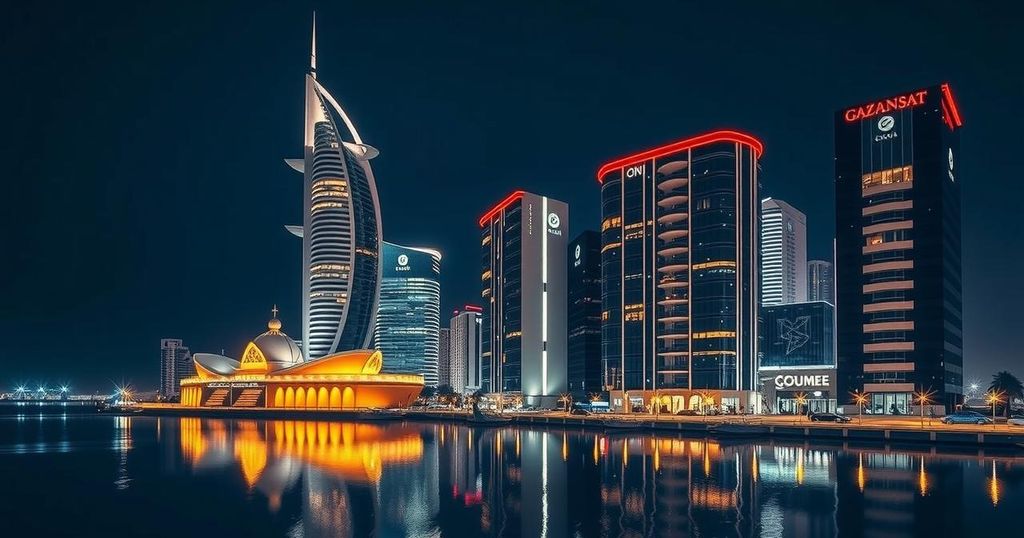A report by C4ADS reveals that numerous Kazakh officials have acquired properties in Dubai, prompting questions about the legality and transparency of these acquisitions. Despite outreach efforts by the Kazakh government to repatriate possibly illicit assets, many officials seem to evade scrutiny, especially those connected to the former Nazarbaev administration. This issue reflects broader challenges concerning governance and transparency in Kazakhstan, exacerbated by external influences such as financial secrecy in the UAE.
In recent years, it has become apparent that a significant number of former and current Kazakh officials have invested in real estate in Dubai, leading to heightened scrutiny regarding the legality of these holdings and the sources of funding behind them. The nonprofit organization known as the Center for Advanced Defense Studies (C4ADS) has documented the ownership of over 2,700 properties in Dubai by approximately 1,550 Kazakh citizens, casting doubt on the transparency and legality of these transactions. Kazakhstan, ranked 28 spots lower than the United Arab Emirates in the World Justice Project’s Rule of Law rankings, presents a compelling argument for its elite individuals to choose Dubai as a safer investment option compared to the political uncertainties in their home country. Despite this, the Kazakh government has previously established initiatives to combat capital flight and incentivize the repatriation of potentially illicit assets. In the aftermath of January 2022 unrest that sparked governmental changes, President Qasym-Zhomart Toqaev’s administration has renewed efforts to tackle wealth retention abroad, especially in light of international calls for transparency surrounding financial practices. However, resistance from those with insider connections persists, as many high-profile Kazakh figures attempt to conceal their foreign assets. The C4ADS report illustrates the disparity between declared assets by selected officials and actual property ownership, reflecting a potential pattern of asset concealment facilitated by their family members. The Kazakh State Revenue Committee reported that only 40 officials have declared 60 properties in the UAE while the full extent of foreign holdings remains undisclosed. Amidst calls for accountability, it is emphasized that further investigations into the wealth of notable figures, particularly those from the former Nazarbaev administration, seem conspicuously absent. Investigative efforts highlight individuals connected to the Nazarbaev family who have successfully avoided heavy scrutiny while reports detailed properties owned under alternative names, possibly obscuring the trail of wealth.
The situation surrounding Kazakhstan’s elite and their investments in Dubai encapsulates broader issues of transparency, governance, and accountability within post-Soviet states. As many high-ranking officials seek safety in foreign investments amidst local instability, concerns regarding the source of their wealth and the legal frameworks governing such transactions have emerged. The initiative launched by President Qasym-Zhomart Toqaev’s administration to recover potentially illicit assets reflects a shift towards addressing long-standing issues of corruption and money laundering—especially in jurisdictions such as the UAE known for their financial secrecy.
The revelations regarding Kazakh officials’ property holdings in Dubai underscore a significant challenge for the Kazakh government, which must navigate internal corruption while striving for a transparent approach to asset recovery. While there are efforts to hold individuals accountable, such as the legislative measures for asset declarations, the lack of transparency surrounding these processes and declarations signals potential obstacles ahead. As the pressure mounts for accountability, the ongoing scrutiny will determine whether substantial progress can be made in addressing the intricate web of wealth retention abroad and establishing trust in the domestic governance framework.
Original Source: www.rferl.org







